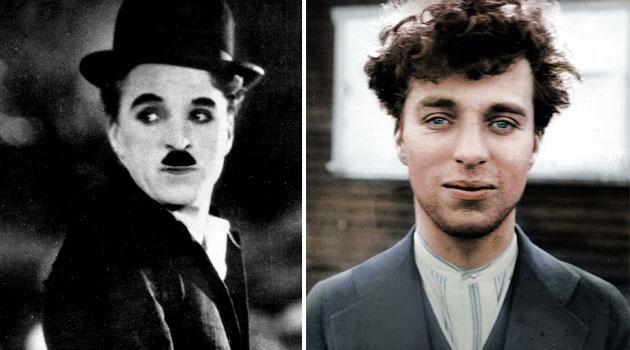Charlie Chaplin's granddaughters making documentary film about his Romani heritage

In their documentary film called “Charlie Chaplin. A Man of the World“, the sisters Carmen and Dolores Chaplin are investigating their grandfather’s Romani origin. Some of the first clips from the film were presented by them at the BCN Film Fest underway in Barcelona last week.
This is the first time the Chaplin family has contributed to such a degree on a film about Charlin Chaplin, both as authors and producers. They say the documentary “radically reinterprets Chaplin’s work from a Romani perspective and, through that lens, investigates the persecution of the Roma.”
The documentary focuses on the Romani roots of film legend Charlie Chaplin, the circumstances of his birth and his childhood period, and how his Romipen affected his art. The film also offers a new, unique view of Chaplin’s life and films, as well as celebrating Romani culture.
In his autobiography, Chaplin himself made no secret of the fact that both his father and mother were themselves half-Romani. He never had a birth certificate but was said to have been born on 16 April 1889 in London, England.
After his death in 1977, a letter was found in his nightstand addressed to him by a Romani correspondent. It describes the night on which Chaplin is said to have been born at a Romani camp in a caravan in Black Patch Park, Smethwick in central-western England.
That letter was discovered by Chaplin’s daughter Victoria, and her brother Michael has reflected on it as follows: “My father received thousands of letters from all over the world. Why would he have kept that one if it didn’t mean something to him?”
“He was very well aware of his Romani roots and told my father and his other children about them. It was something he was proud of, but it was overlooked,” granddaughter Carmen Chaplin told Variety magazine at the San Sebastian film festival in 2019, where the sisters announced they were making their documentary.
Both sisters admit the idea to make the documentary came out of their “grandfather’s passion to find his Romani roots”, which he handed down to their own father, Michael Chaplin. While Michael “left home at the age of 16, he maintained deep feelings for his father all his life”.
“Grandfather was born in the straight-laced Victorian era, while my father was brought up in the atmopshere of the 1960s. Despite the differences in their educations, however, they shared an interest in tracking down their Romani origins. It was infectious,” recalls Dolores Chaplin, explaining that “the documentary investigates the Romani roots of the Chaplins through Michael’s testimony, which is what creates the unifying storyline of the film.”
Michael Chaplin’s other siblings will also speak in the film, which will feature never-before published photos from the family archive as well as some reinterpretations of Chaplin’s work. Granddaughter Carmen, who co-authored the screenplay and directed, believes her grandfather’s Romani roots, along with other factors, explain Charlie Chaplin’s sense of identity and the creation of his most famous character, the Little Tramp, as well as his resistance to Hitler: “If you tell Romani people that Charlie was Romani, they reply ‘obviously’. They recognize it in his sense of humor, the way he tells a story, the tragicomedy in his films and music.”
Speaking at the Barcelona festival, Carmen also said that her grandfather “is one of the geniuses of cinematography who was there when it was beginning and enriched it with many approaches to directing and dramaturgy, with expressive and technical resources, for example, special effects,” and that “his way of telling stories was an enormous contribution to film.” According to her sister Dolores, Charlie Chaplin has inspired many artists and his films never age because they remain quite modern and timeless, as proven by the reactions of audiences who laugh and cry today when watching films such as “Modern Times” or “The Kid“.
A clear example of this timelessness is the fact, according to Dolores, that “the closing speech of ‘The Great Dictator‘ is one of the most sought-after scenes that documentary filmmakers include in their own films.” Carmen Chaplin added: “The films of Charlie Chaplin are currently something that brings people together at a time when separatism and nationalism are predominating in the world. They are silent, but they speak through emotions and humor, which are universal.”
